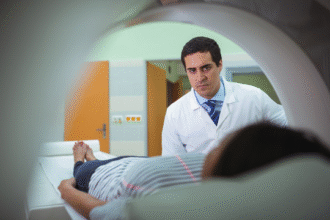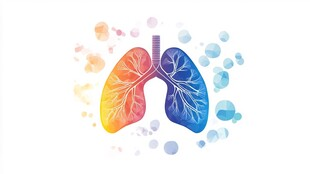Key Points
- Acute, potentially fatal encephalopathy with hepatic steatosis in children, often following viral infection.
- Strong association with aspirin use during influenza or varicella infections.
- Characterized by vomiting, altered mental status, hypoglycemia, hyperammonemia, and elevated liver enzymes.
- Management is supportive: reduce intracranial pressure, correct metabolic disturbances, and avoid aspirin.
- Prevention through public health education on avoiding aspirin in pediatric viral illnesses.
Introduction
Reye syndrome, first described by Douglas Reye in 1963, is a rare but serious condition that primarily affects children and adolescents. It is characterized by acute encephalopathy and hepatic dysfunction with microvesicular fatty infiltration of the liver and other organs. Although the exact mechanism remains unclear, mitochondrial injury triggered by toxins—particularly aspirin metabolites—in the setting of viral infection is central to its pathogenesis.
Epidemiology
- Incidence: Approximately 0.3–1.0 cases per 100,000 children annually in developed countries; much lower since aspirin avoidance campaigns.
- Age group: Predominantly affects children aged 4–12 years.
- Risk factors: Recent influenza B or varicella infection; exposure to aspirin or salicylates.
Pathophysiology
- Viral infection (e.g., influenza B, varicella) predisposes to mitochondrial dysfunction.
- Exposure to aspirin or other hepatotoxic agents leads to impairment of fatty acid β-oxidation in mitochondria.
- Accumulation of microvesicular fat in hepatocytes and multiorgan tissues.
- Hepatic failure and metabolic disturbances (hypoglycemia, hyperammonemia).
- Cerebral edema due to toxic metabolites and ammonia crosses blood-brain barrier, causing encephalopathy.
Clinical Presentation
Prodromal Phase (1–3 days)
- Fever, upper respiratory or varicella symptoms (cough, rash).
- Anorexia and persistent vomiting.
Encephalopathic Phase
- Rapid onset of irritability, confusion, and delirium.
- Progression to lethargy, seizures, and coma.
- Neurologic signs: hyperreflexia, decorticate posturing, seizures.
Hepatic Dysfunction
- Laboratory findings:
- Elevated transaminases (AST, ALT).
- Serum ammonia ↑.
- Prolonged prothrombin time (PT) and activated partial thromboplastin time (aPTT).
- Hypoglycemia.
Diagnostic Evaluation
- Laboratory tests:
- Serum ammonia, LFTs, coagulation profile, blood glucose, electrolytes.
- Neuroimaging:
- CT/MRI to assess cerebral edema (limited use in unstable patients).
- Liver biopsy rarely indicated; shows microvesicular steatosis without significant inflammation.
Differential Diagnosis
- Viral or bacterial encephalitis.
- Acute fulminant hepatic failure (Wilson disease, drug-induced liver injury).
- Metabolic disorders (e.g., urea cycle defects, organic acidemias).
- Toxic ingestions (acetaminophen, valproate).
Management
- Admit to ICU for close monitoring and supportive care.
- Control intracranial pressure:
- Head elevation, hyperventilation, osmotic diuretics (mannitol or hypertonic saline).
- Correct metabolic derangements:
- IV dextrose to prevent hypoglycemia.
- Sodium benzoate or sodium phenylacetate for hyperammonemia.
- Maintain fluid and electrolyte balance.
- Seizure control with benzodiazepines or barbiturates.
- Avoid salicylates and other mitochondrial toxins.
Nursing Considerations
- Hourly neurologic assessments (Glasgow Coma Scale, pupil checks).
- Monitor vital signs and intracranial pressure if available.
- Frequent blood glucose and ammonia level checks.
- Ensure adequate IV access and fluid management.
- Protect airway; prepare for intubation if decreased consciousness.
- Educate family about the importance of aspirin avoidance.
Prognosis
- Mortality rate historically 20–40%, with higher risk in delayed diagnosis.
- Up to 30–50% of survivors may experience long-term neurological sequelae (cognitive impairment, motor deficits).
Patient Education and Prevention
- Avoid aspirin and salicylate-containing medications in children and adolescents with viral illness.
- Use alternative antipyretics: acetaminophen or ibuprofen.
- Seek medical attention for persistent vomiting or altered mental status.
References
- Reye RD, Morgan G, Baral J. Encephalopathy and fatty degeneration of the viscera; report of 15 cases. Pediatrics. 1963;32:5–29.
- Horn PS, Moore CA, Gabel RA, Klein JP, Salzman GC. Reye syndrome in the United States from 1981 through 1997. Pediatrics. 2001;108(3):610–615.
- Whitington PF. Pediatric acute liver failure: Etiologies, outcomes, and management strategies. Clin Liver Dis. 2018;22(4):769–786.







